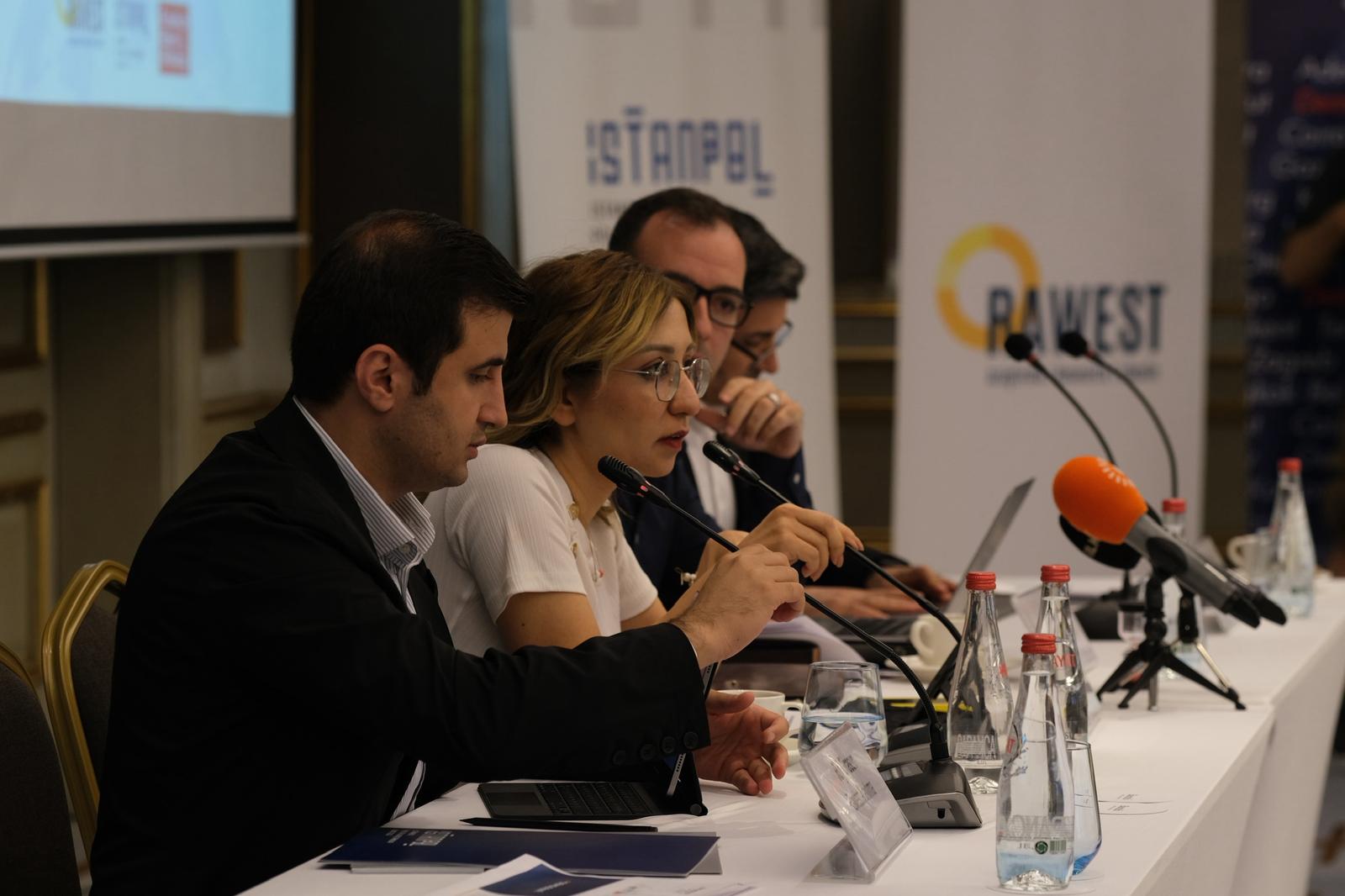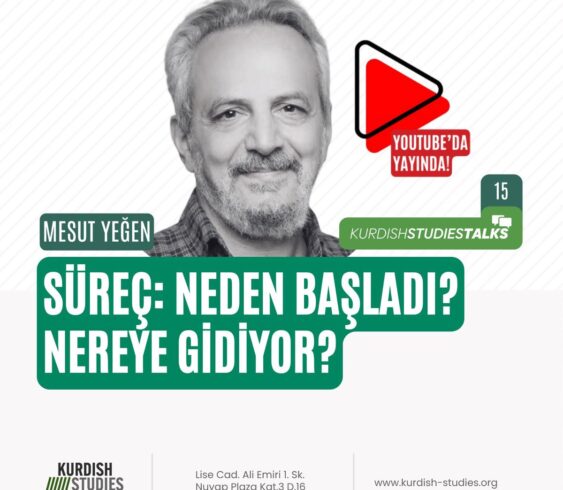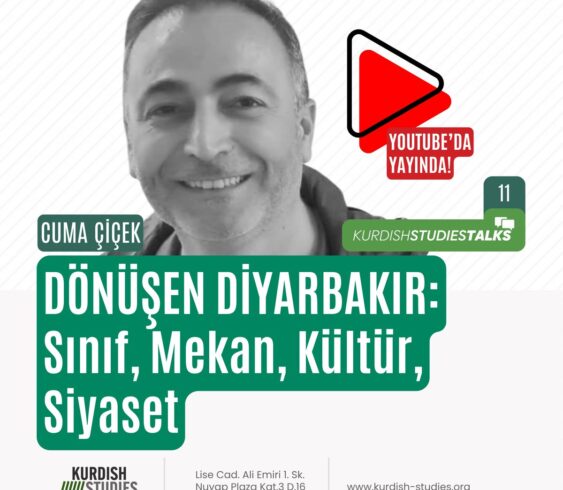A New Era in the Kurdish Issue: Perceptions, Opinions, and Attitudes of Türkiye’s Society

The research titled “A New Era in the Kurdish Question: Perceptions, Opinions, and Attitudes of Türkiye’s Society,” conducted in collaboration with IstanPol and Rawest Research and supported by the Kurdish Studies Center (KSC), was presented on June 23, 2025, in Istanbul to representatives from civil society, the media, and political parties.
Conducted between May 13 and 23, 2025, the nationwide survey in Türkiye included 2,010 participants from diverse age groups, educational backgrounds, and ethnic identities. Alongside their opinions on the March 19 process—which involved the arrest of Ekrem İmamoğlu and legal proceedings against the CHP—and the Kurdish issue, the research also covers views on the new process initiated by Devlet Bahçeli on October 1 and continued with the PKK’s decision to disband. Additionally, the survey addresses broader social demands.
* The research was conducted with the support of the Friedrich-Ebert-Stiftung Türkiye Representation. You can download the full report here.
March 19 Process
The cancellation of İmamoğlu’s diploma, his subsequent arrest, and the ongoing legal actions against CHP-affiliated municipalities have led to a redefinition of politics within Turkish society since March 19. According to the research, the March 19 process appears to have created political polarization in society. While less than one-third of participants view the diploma cancellation and arrests as justified, 46% believe İmamoğlu was targeted for arrest because he was expected to win the election. Approximately two-thirds of Cumhur İttifakı voters support the operation, whereas there is significant opposition among CHP and DEM Party voters.
The Kurdish Issue
The existence of a Kurdish issue or a problem concerning the Kurds is broadly acknowledged by Turkish society. While 41% of Turks affirm the presence of a Kurdish problem, this figure rises to 60% among Kurds. Additionally, 29% of participants believe that Kurds and Turks are not equal before the state. Among Kurds, this perception approaches 50%.
Forty percent of participants see the Erdoğan-Bahçeli duo as the leaders capable of resolving the Kurdish issue. Among Kurds, this pair is followed by Demirtaş, while among Turks and other groups, the İmamoğlu-Özel duo ranks next. Nearly all of Mansur Yavaş’s support comes from Turks. Among Kurds, Mansur Yavaş is also the least trusted political figure within the CHP regarding the process.
The New Process
Another notable finding is the increasing support for the “new process” since October 2024. Support rates, which hovered around 45-46% in October, have now risen to nearly two-thirds. Between October 2024 and May 2025, support among Kurds increased progressively from 35% to over 80%, while among Turks and other groups, it rose from 38% to around 60%.
The highest level of support for the process comes from voters of the DEM Party. Half of CHP voters support the process, and the remainder are largely neutral. Among CHP voters, 34% express opposition to the process. The highest proportion of opposition comes from İYİ Party voters, with one-quarter of MHP voters and one-sixth of AKP voters also expressing non-support.
Overall support for the process stands at 64%, but only 42% consider the process successful. Only among AKP voters does the success rate exceed 50%; in all other voter groups, the rate remains below 50%.
Nearly 60% of participants believe the process improves national security and benefits both Turks and Kurds, and there is a strong belief that the process is advantageous for both the AKP and DEM Party.
The research also reveals public motivations regarding the process. The strongest perceived motivation is the belief that the ruling party’s main goal is to enable Erdoğan to remain president for another term. Belief that the process aims to establish Kurdish-Turkish equality is similarly strong. Meanwhile, 30% believe the process intends to hinder Kurdish gains in the Middle East, while 49% disagree.
Confidence in the PKK disarming remains mixed. Two-thirds of Kurds believe the PKK will lay down arms, while one-quarter do not. Among Turks, belief in disarmament is at 42%.
CHP and the Process
According to the research, perceptions about which party the new process favors or harms vary by party affiliation. Two-thirds of Kurds and nearly half of Turks and other groups believe the process is progressing in favor of the AK Party and the DEM Party. There is no consensus on whether the process is beneficial or detrimental to CHP: a higher proportion of Kurds think it favors CHP, while among Turks and other participants, those who believe it is going well for CHP are fewer than those who think it is going badly. The process is seen as more hopeful by AK Party and DEM Party supporters, and more uncertain and mixed by CHP supporters.
Three-quarters of Kurds and 85% of DEM Party voters consider CHP’s involvement in the process important. In fact, the cooperation between the DEM Party and CHP is supported by the bases of both parties: 57% of CHP voters and 67% of DEM Party voters endorse collaboration between the two parties. Although expectations regarding CHP and its role in the process are high, half of the participants believe that CHP does not have a specific policy on the Kurdish issue.
Social Demands
The research categorizes the demands raised during the process into three groups: the mother tongue, the situation of imprisoned and returning organization members, and local development.
According to the research, local development and the expansion of municipal authorities receive support from a large majority of society (69% and about two-thirds). The use of Kurdish alongside Turkish in local administrations is positively received by 60% of participants.
The release of Demirtaş finds widespread support among Kurds, while among Turks this support remains at about one-third.
The research, consistent with previous studies, emphasizes that the greatest demand among Kurds is for the mother tongue. Those supporting multilingual education outnumber those opposed. Among Turks and other groups, support for education in the mother tongue visibly increases on the condition that the PKK disarms.
Download PDF Report
